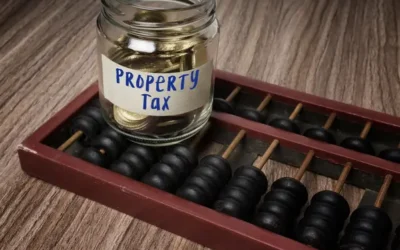Texas Disabled Veterans’ Property Tax Exemptions
| VA Disability Rating | Exemption on Assessed Value | Notes |
|---|---|---|
| 10%–29% | $5,000 | Applies to one chosen property |
| 30%–49% | $7,500 | Applies to one chosen property |
| 50%–69% | $10,000 | Applies to one chosen property |
| 70%–99% | $12,000 | Applies to one chosen property |
| 100% or IU | Full exemption on residence homestead | No property taxes on the homestead |
Quick take: Texas scales disabled-Veteran exemptions by VA rating. Partial ratings reduce assessed value by a fixed dollar amount. A 100% rating or IU gets a full homestead exemption. Surviving spouses may continue benefits.
Eligibility Requirements
- Texas resident and U.S. Veteran with service-connected VA disability rating of at least 10%.
- Own (and for full exemption, occupy) the residence homestead if claiming the 100% benefit.
- Provide an official VA award letter or service documentation showing the disability percentage.
How to Apply
- Forms: Form 50-114 (Residence Homestead) and/or Form 50-135 (Disabled Veteran’s Exemption).
- Submit to your county appraisal district with VA award letter and Texas ID matching the property address.
- Deadline: generally April 30 of the tax year (late filings may still be accepted under state rules).
- You should receive written confirmation from the appraisal district after review.
Surviving Spouse and Family
- Unremarried surviving spouses can continue the Veteran’s exemption; if the Veteran had 100%, spouse may receive a full homestead exemption.
- Unremarried surviving spouses and unmarried minor children of partially disabled Veterans may qualify for a matching partial exemption.
What exemptions does Texas provide to disabled Veterans?
Texas provides a partial exemption on one designated property based on the Veteran’s VA disability rating and a separate total exemption on the Veteran’s residence homestead if rated 100% or paid at the 100% rate via unemployability. Texas Tax Code §§11.22 and 11.131 establish these programs and core eligibility rules. Texas Tax Code Ch. 11.
Texas Comptroller: Property Tax Exemptions.
- The rating-based exemption under Section 11.22 reduces the assessed value of one property the Veteran owns and designates, which can be the homestead or another parcel, lowering taxes across applicable taxing units.
- The total homestead exemption under Section 11.131 eliminates school, county, city, and special district ad valorem taxes for a qualifying Veteran’s principal residence, subject to standard Texas homestead qualification rules.
- Surviving spouses may continue certain exemptions if unmarried, and spouses of service members killed or fatally injured in the line of duty can receive a total homestead exemption with transferability to a new homestead.
- Confirm your current VA disability rating or unemployability status, as that determines whether you pursue a partial exemption on one property or a total homestead exemption.
- Decide which property to designate under 11.22 if seeking the rating-based exemption, since the statute limits the benefit to one property you specify to the appraisal district.
- Identify whether your benefit should extend to a spouse, and document marital status and homestead use to meet the specific survivorship and transfer conditions in the statutes.
| VA Disability Rating | 11.22 Exemption Amount (assessed value) |
|---|---|
| 10%–29% | $5,000 |
| 30%–49% | $7,500 |
| 50%–69% | $10,000 |
| 70%–99% | $12,000 |
Who qualifies for the 100% disabled Veteran homestead exemption?
Veterans whose VA decision assigns a 100% disability rating or pays at the 100% rate due to Individual Unemployability qualify for a total residence-homestead exemption. The Comptroller confirms both 100% and unemployability satisfy §11.131, aligning with VA’s IU framework. Comptroller: Exemptions overview.
VA: Individual Unemployability.
- The exemption applies only to the residence homestead that meets Texas homestead criteria, including principal residence use and documentation requirements enforced by county appraisal districts.
- “Paid at the 100% rate” via unemployability qualifies even if the combined rating is below 100%, provided VA’s decision shows IU, aligning the benefit with Veterans in receipt of total compensation.
- Surviving spouses of qualifying Veterans may continue a total exemption if they haven’t remarried and the property remains their residence homestead, subject to statutory transfer provisions.
- Obtain your VA rating decision reflecting a 100% rating or IU; ensure the letter clearly shows the basis for compensation at the 100% rate.
- Complete the Residence Homestead Exemption Application (Form 50-114), attaching your VA documentation and Texas driver license or ID that matches the homestead address.
- File with your county appraisal district; keep copies, and watch for the approval notice, which applies to the entire tax year of qualification.
How does the rating-based exemption under Section 11.22 work?
Section 11.22 grants a fixed-amount reduction to assessed value based on VA rating and can be applied to one property you designate. If the Veteran dies, certain partial benefits can continue for a surviving spouse or eligible children while unmarried. Texas Tax Code §11.22.
- Choose any one property as of January 1—vacant land, personal property account, or a residence—because the law does not require the 11.22 exemption to be tied to a homestead.
- Amounts are set in statute and apply across rating tiers; they reduce taxable value before each taxing unit’s rate is applied, improving savings where rates are higher.
- Surviving spouses keep the deceased Veteran’s 11.22 dollar amount if they remain unmarried, and qualifying minor children may divide it if no spouse survives.
- Verify your VA disability rating tier (10–29%, 30–49%, 50–69%, or 70–99%) to determine the statutory dollar reduction you can claim.
- File Form 50-135 with your county appraisal district, designating the single account that should receive the 11.22 exemption for that tax year.
- Maintain documentation in case of audit, including proof of ownership on January 1 and your VA award letter showing the rating tier used for the exemption.
What relief exists for donated residence homesteads (Section 11.132)?
When a charitable organization donates a residence homestead to a partially disabled Veteran, Texas grants a percentage exemption equal to the Veteran’s disability rating. Qualified surviving spouses may also benefit if they have not remarried and the home remains their homestead. Texas Tax Code §11.132 (PDF).
Comptroller: Exemptions overview.
- The exemption equals the VA disability rating percentage and applies only to the donated residence homestead; it is not a fixed dollar amount like Section 11.22.
- The donation must meet the statute’s definition (charitable organization, donated at no cost or reduced cost with specific thresholds) for eligibility to attach.
- Surviving spouses may maintain the exemption if statutory conditions are met, including remaining unmarried and maintaining the property as the residence homestead.
- Confirm the donation’s qualifying status under statute and gather the deed or donation documents from the charitable organization to support your claim.
- Apply with Form 50-114 and attach your VA rating letter; if you are a surviving spouse, include evidence of marital status and homestead use.
- Retain approval documentation and note that qualifying during the year makes the exemption effective for the entire tax year by statute.
| Situation | Exemption Type | Statute |
|---|---|---|
| Donated homestead to partially disabled Veteran | Percentage of appraised value equals VA disability rating | §11.132 |
| Standard Veteran with 10%–99% rating (any designated property) | Fixed dollar amount by rating tier | §11.22 |
| Veteran with 100% rating or paid at 100% via IU | Total residence-homestead exemption | §11.131 |
Do surviving spouses qualify, and can benefits transfer to a new homestead?
Yes. A surviving spouse of a 100% disabled Veteran may continue a total homestead exemption if unmarried, and the surviving spouse of a service member killed or fatally injured in the line of duty receives a total homestead exemption with dollar-amount portability to a later homestead. Texas Tax Code §§11.131 & 11.133.
- Under §11.131, the surviving spouse keeps the total exemption on the same homestead while unmarried; if they later qualify a different homestead, a dollar-amount transfer mechanism applies under statute.
- Under §11.133, spouses of members killed or fatally injured in the line of duty receive a total exemption and can transfer the dollar amount to a new Texas homestead, provided they remain unmarried.
- For 11.22 cases, surviving spouses keep the deceased Veteran’s fixed-dollar amount while unmarried, and eligible minor children may divide the amount if no spouse survives.
- Gather the prior exemption approval and proof of marital status; ensure the property is your residence homestead at the time of the Veteran’s death.
- If moving, request the transfer by filing the homestead application for the new property and supplying the prior exemption dollar amount as required.
- Maintain continuous documentation because portability depends on the last year’s exemption dollar value and your continuing eligibility under statute.
How do you apply for Texas disabled Veteran exemptions?
File with your county appraisal district. Use Form 50-135 for the §11.22 rating-based exemption on one property, and Form 50-114 for homestead-based exemptions, survivorship transfers, and donated-homestead claims. The Comptroller’s forms detail supporting documents and identification requirements. Form 50-135 (PDF).
Form 50-114 (PDF).
- Attach your VA award letter showing the current disability rating or unemployability; ensure names and identifiers match county records to avoid processing delays.
- For homestead claims, include a Texas driver license or ID with the homestead’s address, as appraisal districts use this to verify principal residence eligibility.
- If you qualify during the year for certain homestead exemptions, statute applies the benefit to the entire tax year, reducing taxes as if qualified January 1.
- Download and complete the correct form; verify parcel numbers and legal descriptions match the property you intend to claim.
- Submit the application and all attachments to the county appraisal district; keep proof of submission and request written confirmation of approval.
- Mark your calendar for follow-ups or future transfers if you change homesteads; refile if the chief appraiser requests updated documentation.
Can you file late or after you qualify during the year?
Yes. Texas allows late applications for key disabled-Veteran exemptions if filed within five years after the delinquency date, and certain homestead-based exemptions are effective for the entire tax year in which you qualify. See §§11.42 and 11.439 for timing and late-filing provisions. Texas Tax Code (PDF).
- You may submit late claims for §11.22, §11.131, and §11.132 within the statutory five-year window; approved late claims can generate refunds of prior overpaid taxes.
- Qualifying during the year makes homestead-based exemptions applicable as of January 1, simplifying proration and ensuring the full year’s relief where allowed.
- Appraisal districts publish local procedures; always confirm the county’s documentation and deadline practices to avoid processing setbacks on late filings.
- Identify the delinquency date from your tax bill; count backward five years to determine the oldest tax year still eligible for a late claim.
- File the appropriate form with supporting proof for each tax year you are claiming; request refund processing where overpayments occurred.
- Maintain a record of approvals and refunds, as future moves or status changes can affect portability and continuing eligibility requirements.
Frequently Asked Questions
Do I have to live in the home for the 11.22 exemption?
No. Section 11.22 provides a rating-based dollar exemption on one property you designate and does not require homestead use. The total exemption under Section 11.131 applies only to your residence homestead and requires meeting Texas homestead documentation.
Does unemployability count the same as a 100% rating?
Yes. If VA pays you at the 100 percent rate through Individual Unemployability, you qualify for the total residence-homestead exemption. Your VA decision should reflect payment at the 100 percent rate, even if your combined rating is below 100 percent.
Can I transfer a surviving-spouse exemption to a new home?
Yes. Unremarried surviving spouses can transfer the dollar amount of a total homestead exemption to a new Texas residence. The appraisal district uses the last year’s dollar amount to set the new exemption after the move and qualification.
Which form do I use for a rating-based exemption?
Use Form 50-135 to claim the Section 11.22 disabled Veteran’s exemption on one designated property. Attach your VA award letter showing the qualifying rating and file with the county appraisal district where the property is located.
Which form do I use for the total homestead exemption?
Use Form 50-114 to claim the Section 11.131 total residence-homestead exemption. Include your VA rating or unemployability letter and a Texas driver license or state ID that matches the homestead address when submitting to the county appraisal district.
Can I file late and still receive relief?
Yes. Texas allows late applications for major disabled-Veteran exemptions within five years after the delinquency date. Approved late claims may generate refunds for overpaid taxes. You must file the appropriate form and supporting evidence for each eligible tax year.
Does the 11.22 exemption affect all my properties?
No. You must designate a single property for Section 11.22 each year. The fixed dollar reduction applies only to that property’s assessed value. You may change the designated account in future years by filing with the appraisal district.
Do donated homesteads get special treatment?
Yes. Under Section 11.132, a donated residence homestead receives a percentage exemption equal to the Veteran’s VA disability rating. Qualifying surviving spouses may continue the relief while unmarried if the property remains their residence homestead and statutory conditions are satisfied.
What proof do I need for homestead claims?
Provide your VA rating or unemployability letter and a Texas driver license or ID showing the homestead address. Appraisal districts use matching identification to verify principal residence status and process the exemption application correctly and without unnecessary delays.
Can a surviving spouse keep a partial 11.22 exemption?
Yes. An unremarried surviving spouse may keep the deceased Veteran’s fixed Section 11.22 dollar amount on the designated property. If no spouse survives, eligible minor children may divide the dollar amount, subject to statutory conditions and appraisal district procedures.
Citations Used
- Texas Tax Code Chapter 11 (disabled Veteran, spouse, and KIA provisions)
- Texas Tax Code Chapter 11 (PDF reference for §11.132, §11.42, §11.439)
- Texas Comptroller: Property Tax Exemptions (program overviews)
- Form 50-114: Residence Homestead Exemption Application
- Form 50-135: Disabled Veteran’s or Survivor’s Exemption Application
- VA: Individual Unemployability (paid at the 100% rate)







